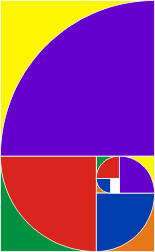A few weeks back, I posted a video detailing how, years ago, I conquered both clinical depression and OCD by learning how to act and think differently in order to change my emotional state. That video detailed what I did behaviorally, since that was my first area of focus.
After viewing that video, a number of people asked if I would share some of the specific things I did to change my thinking. I agreed to do so, and outlined three, additional videos that detail the major things I did to change my thinking (for a total of four videos). Video number two detailed how I effectively dealt with my internal “chatter box.”
In this third video, I will focus on three, additional tools that I used to conquer my mental illness.
In some of my workshops and seminars, I ask participants if any of them have ever been to Florence, Italy. It’s not uncommon for a hand or two to go up. I then ask those people if they had a chance to visit the Gallery of the Academy of Florence to see Michelangelo’s statue of David. Usually they have. Next, I ask them if after waiting in line to view the statue they just took a quick look and then moved on. This always elicits a laughing response of, “Are you kidding?” They reply that they took the time to walk around the statue and view it from every angle. When I ask why, they say something like, “Because viewing the statue from different positions provided me different perspectives and increased my appreciation of Michelangelo’s genius.”
Just as it is important to view a great statue from different vantage points, it can also be useful to view situations in our lives from different vantage points. Because, when we do, we gain different perspectives. Psychologists have a term for this practice. They call it “reframing.”
For example, when teaching a group of people who have just lost their jobs, I often say, “Describe to me your current employment situation.” Participants most often reply by saying things such as: “I just got downsized.” Or “I’m unemployed.”
I then respond by saying, “Those are certainly two ways of looking at your current situation—are there other possibilities?” Often, someone will speak up and say, “You know, I wasn’t really happy there, but I wasn’t unhappy enough to make a change. So, I’m using this opportunity to carefully consider what I want to do next with my life.” That is a much more empowering “frame” than “I’m unemployed.” I then ask the whole group: “Which of those frames do you think will be more useful in helping you find compelling employment?”
Years ago, while trying to rise above my depression and OCD, I started to use “reframing” to look at my thought patterns and life situation in a different light. For example, I learned to ask myself, “What could be good about this?” Some of you might be thinking, “OK, you just lost me.” Well, when I asked myself what could be good about dealing with depression and OCD, I came up with a variety of responses, such as: “I now have much more empathy for others who are struggling mentally.” and “This is giving me an opportunity to learn about how the human mind works and how to maximize its power.” Learning how to look at my life and my thoughts from different angles was one of the major tools I used to heal myself all those years ago, and it remains a potent tool to this day in helping me manage my mental landscape. I have come to believe, strongly, that the quality of the lives we live is determined—in large measure—by the quality of the questions we ask ourselves, because when we ask different questions, we gain different perspectives.
Over the years, I have written down many important questions in my journal, that I like to regularly ask myself. I also like to think of fun and creative ways to remember my important questions.
For example, I have collected rocks and minerals since I was a young boy. When I became an adult, I became much more involved with my hobby—even serving as President of Mineral Collectors of Utah at one point. One of the things I find fascinating about the mineral kingdom is the beautiful, geometric forms that minerals crystallize in.
few years ago, I was teaching a workshop at Rio Tinto which operates the famous Bingham Canyon Mine in Utah. During my introduction it was mentioned that I was a lifelong mineral collector. Well, that endeared me to the group big time. One participant arranged to show me the company mineral collection, and another participant gave me a gorgeous specimen from the mine—a pyrite dodecahedron.
I combined my love of crystal geometry with my practice of asking myself important questions. I created a dodecahedron, and placed one of my important questions on each of the 12 faces. This has been on a shelf next to my desk for years, where I am reminded, daily, to ask myself important questions, such as (read a few).
I have learned that considering important questions each day I live helps me to find deeper meaning in my life, which brings me to the last topic I want to discuss with you today.
This book, Man’s Search for Meaning by Viktor Frankl, is one of the most powerful books I have ever read—and continue to reread. It provided a major distinction that helped me to conquer clinical depression and OCD all those years ago. The book details one man’s efforts to find meaning while trying to survive a Nazi death camp during WWII. Even amidst the ugliness, depravity and abject evil, this wise man was able to find meaning in his experience. I often share this passage with participants in my programs:
“We who lived in concentration camps can remember the men who walked through the huts comforting others, giving away their last piece of bread. They may have been few in number, but they offer sufficient proof that everything can be taken from a man but one thing: the last of human freedoms—to choose one’s attitude in any given set of circumstances, to choose one’s own way.” (page 86)
What an important and empowering truth. You and I—regardless of the circumstances we might find ourselves in during life—always have the power to choose our attitude!
Interestingly enough, in my reading over the years, I discovered the fact that many great people have taught this same truth. For example:
Marcus Aurelius, the Roman Emperor and philosopher said, “You have power over your mind—not outside events. Realize this, and you will find strength.”
The 13th century, Sufi mystic, Rumi said, “Why do you stay in prison when the door is so wide open?”
Abraham Lincoln, our 16th President, who struggled with depression, observed, “Most folks are as happy as they make up their minds to be.”
And finally, these wise words from William James, the father of American psychology:
“The greatest discovery of my generation is that a human being can alter his life by altering his attitudes.”
Learning how to reframe situations, ask myself better questions, and take responsibility for choosing my attitude were three of the powerful tools I used to conquer clinical depression and OCD—and transform my life. I hope this information has been helpful to you. In my next, and final, video, I will finish sharing the major strategies and tools I used to heal myself. Until then, keep smiling, keep well, and have an extraordinary day!

